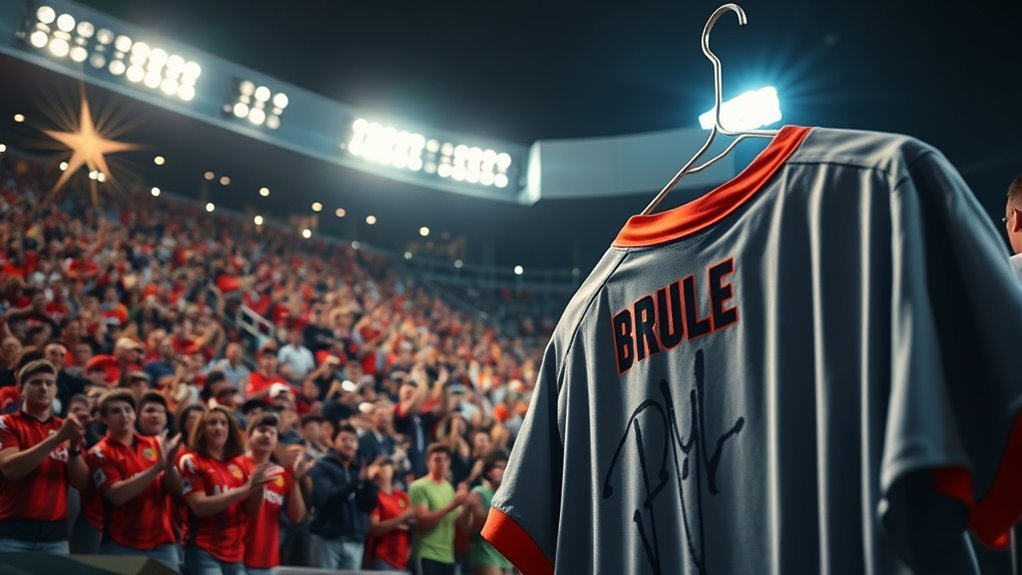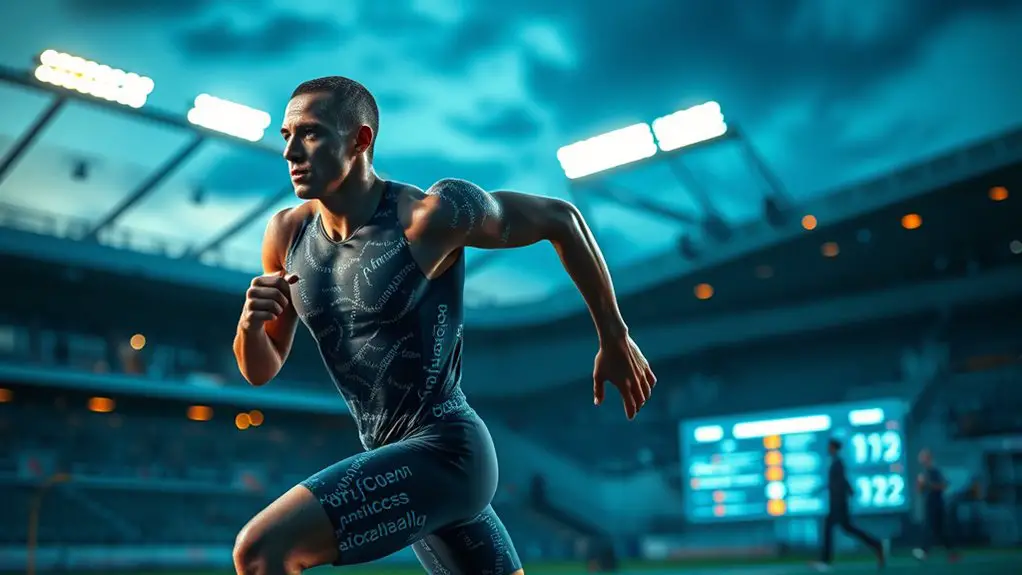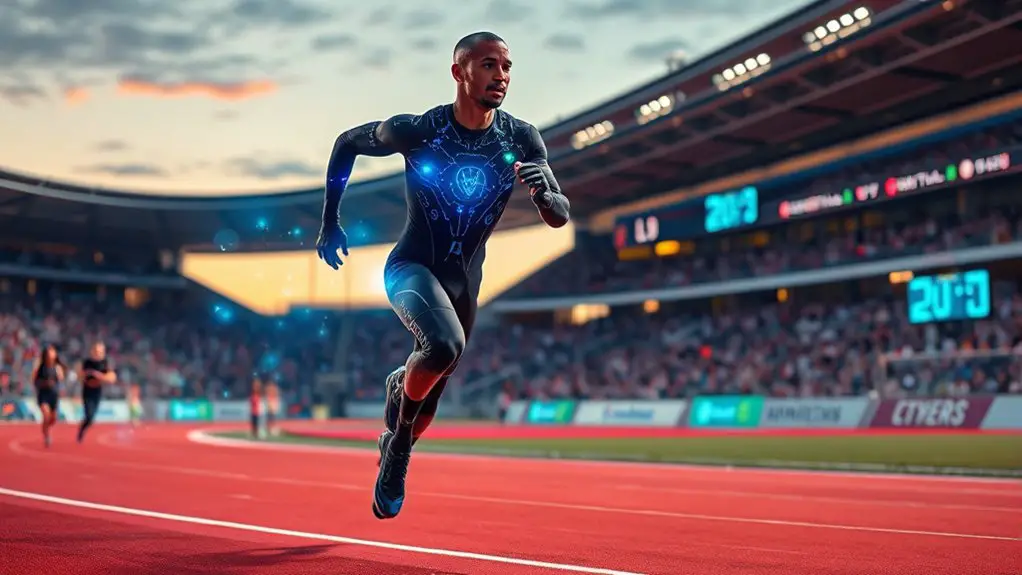Athletes get paid so much because they generate massive revenue through ticket sales, sponsorships, and media rights. Successful teams attract more fans, which boosts ticket sales and merchandise demand. Endorsements often exceed their salaries, thanks to their marketability and fan engagement. Additionally, media deals from high viewership translate to greater payouts. All these factors create a financial ecosystem that rewards top talent generously. Stick around to understand more about the forces behind these lucrative contracts.
The Economics of Sports Revenue
When you consider the staggering salaries of professional athletes, it’s clear that sports revenue plays an essential role in their paychecks. The money flowing into teams largely comes from ticket sales, which hinge on team performance. When a team excels, fans flock to the stadium, keen to witness greatness, and this surge in attendance boosts revenue. Higher ticket sales mean more funds available to pay athletes, creating a cycle where success breeds financial reward. Additionally, the excitement of a winning team can elevate demand for merchandise and concessions, further increasing profits. Ultimately, the economics of sports revenue highlights how closely tied an athlete’s earnings are to their team’s achievements and the fans’ willingness to invest in that experience. Furthermore, teams often incorporate solid training plans to help athletes perform at their peak, which can lead to greater success on the field and, consequently, higher revenues.
The Impact of Sponsorship and Advertising
While many fans focus on players’ salaries, the financial landscape of sports is profoundly shaped by sponsorship and advertising. Athletes often secure lucrative endorsement deals that can greatly boost their income, sometimes exceeding their salary. Brands seek to align themselves with athletes who embody their values, leading to powerful brand partnerships. These partnerships not only enhance an athlete’s earnings but also allow companies to reach dedicated fan bases. As you watch your favorite athlete promote products, remember that these deals reflect their marketability and the cultural influence they wield. The synergy between sports and commerce creates a dynamic environment where everyone benefits, granting athletes the freedom to explore their passions while maximizing their financial potential.
Fan Engagement and Loyalty
As athletes build strong connections with their fans, the role of engagement and loyalty becomes essential in driving their appeal and financial success. When you feel that bond, it transforms your experience, making you part of something bigger. Engagement strategies like social media interactions, behind-the-scenes access, and community events deepen that connection, fostering unwavering fan loyalty. This sense of belonging is enhanced by the intrinsic motivation athletes feel, as they strive to connect with their audience and share their passion for the sport.
| Emotion | Connection | Impact |
|---|---|---|
| Excitement | Shared Moments | Lasting Memories |
| Belonging | Community Spirit | Identity |
| Inspiration | Role Models | Motivation |
These elements create a vibrant culture, allowing athletes to thrive while you share in their journey, celebrating victories and supporting through challenges. Your loyalty fuels their success.
Market Demand and Competition
Market demand and competition play essential roles in determining athletes’ salaries. When you look at the labor market for professional sports, it’s clear that the most talented athletes are in high demand. Teams compete to secure top players, driving up their value. During salary negotiations, agents leverage this competitive landscape, pushing for contracts that reflect an athlete’s worth in a thriving market. Fans are willing to pay for experiences and merchandise, which further fuels the demand for star players. This creates a cycle where higher salaries attract better talent, enhancing the sport’s appeal. Ultimately, it’s this interplay of market demand and competition that leads to the staggering salaries we see, empowering athletes to maximize their earning potential.
The Role of Media and Broadcasting Rights
The financial landscape of professional sports is heavily influenced by media and broadcasting rights, which have become a significant revenue source for teams and leagues. This media influence drives broadcasting profits, allowing franchises to pay athletes astronomical salaries. Here’s how it all ties together:
- Viewership: The more people tune in, the more networks are willing to pay for broadcasting rights.
- Sponsorship: Advertisers flock to sports broadcasts, boosting revenue for teams and players alike.
- Global Reach: With digital platforms, sports can now reach millions worldwide, increasing demand and profits.
In this environment, athletes’ paychecks reflect the financial success generated by media deals. So, the next time you wonder why athletes earn so much, remember the power of media and its impact on the sports industry.
Frequently Asked Questions
Do Athletes’ Salaries Affect Ticket Prices for Fans?
Absolutely, athletes’ salaries can symbolize the high stakes of entertainment, impacting ticket prices for fans. When these salaries soar, teams often raise ticket prices to cover costs, which can squeeze ticket affordability. You want to enjoy the thrill of a live game, but rising costs can tarnish that fan experience. It’s essential to balance the excitement of elite athletes with what you pay, ensuring you feel free to cheer without breaking the bank.
How Do Player Injuries Impact Their Earning Potential?
Player injuries can greatly impact earning potential. If you’re injured, your ability to perform diminishes, which might lead to reduced contracts and salary guarantees. Many athletes rely on injury insurance to help cover lost income during recovery. However, if you can’t return to form, teams may hesitate to invest in you long-term. It’s a risky game, balancing the thrill of competition with the harsh realities of injury on your financial future.
Are All Athletes Equally Compensated Across Different Sports?
No, not all athletes are equally compensated across different sports. Factors like sport popularity and gender pay disparities play significant roles. For instance, male athletes in popular sports like basketball or football often earn much more than female athletes in less popular sports. This stark contrast reflects societal values and market demand, which can limit earning potential for many athletes, regardless of their talent or dedication. It’s a complex issue tied to broader cultural perceptions.
What Role Do Agents Play in Athlete Salary Negotiations?
Agents play an essential role in athlete salary negotiations. They leverage their industry knowledge and relationships to maximize your earnings. Through negotiation tactics, agents can highlight your value and marketability, ensuring you’re compensated fairly. They also navigate complex contracts and endorsements, allowing you to focus on your performance. With their expertise, you gain the freedom to pursue your passion while they handle the business side, ultimately enhancing your financial opportunities.
How Do Bonus Structures Influence Athlete Pay?
Bonus structures can greatly influence athlete pay, right? With performance incentives tied to their contract clauses, athletes can earn extra cash for hitting specific benchmarks, like scoring goals or achieving certain stats. This system encourages you to push your limits, aiming for greatness while also boosting your earnings. It’s a win-win—your hard work translates into financial rewards, giving you the freedom to pursue your passion without worrying as much about money.




